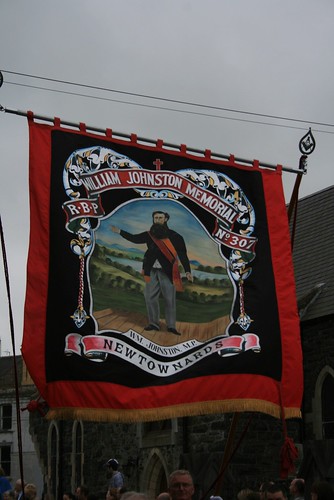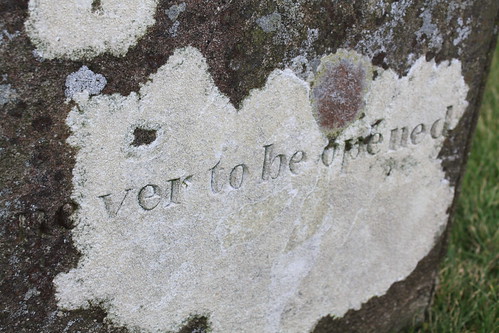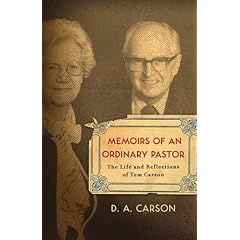The ends justify the means. So long as something good happens at the end - that is, whatever you want to happen - then it doesn’t matter how you get to that point. Would this be a fair representation of our Christian lives as we seek to tell other people the good news? Is that the way Paul viewed his evangelism and preaching? It doesn’t matter how you do it, so long as you get a result, so long as someone professes faith (whether or not they’re genuinely converted)?
We began last week with our new series in Paul’s letter to the Christians in Thessalonica. Remember that Paul had been there for a brief time before a riot started, and the newly converted Christians sent Paul and his companions away to Berea. They hadn’t seen him again, and Paul had continued through Athens to Corinth, where he sits down to write this letter back to Thessalonica to encourage the brothers and sisters.
But because of the shortness of his visit, and his speedy exit, it seems that some people were questioning what Paul had done. Was he just another travelling peddler of religion and wisdom, but when the hard times came then he was off? Was he just exploiting the naivety or goodness of the people of Thessalonica? Was he only out to enlarge his tummy and his pocket at their expense?
Through the week we’ve seen some controversy concerning our local MP. Her actions have been questioned, as well as her motives. The statements on Wednesday were the first defence, an explanation of what had happened and why. I’m not going to talk about those problems - but rather here in 1 Thes 2 we have Paul’s defence of his actions in response to the accusations of some in Thessalonica.
As the passage was read, you might have noticed it was a bit like watching a tennis match - you know, back and forth yes, no, yes, no and so on. Appeal not springing from error, approved by God; not speaking to please man, but to please God; not with words of flattery - God is witness; not seeking glory, but being gentle. Back and forth. We weren’t like this, but we did do this.
Paul sets out his motives, his words and his actions of evangelism while in Thessalonica. As we rejoice in the small steps of evangelism around Christmas time, we need to think through how and why we do our evangelism in this year. Paul is absolutely clear in what and why he does what he does - let’s hope that God’s word helps us to also be clear in our mission. As Paul says in verse 1 - his coming to them wasn’t in vain; as we saw last week, they were thoroughly converted - they are the first evidence of Paul’s pure motives and godly conduct.
And this within the particular circumstances of his time in Thessalonica. Previously, he had been in Philippi, and ended up being beaten, then thrown in prison. Maybe you would think, well, I’ll maybe go easy this time, prison wasn’t very nice, maybe I’ll tone down my message. That would certainly be a temptation. Yet Paul declares he had ‘boldness in our God to declare to you the gospel of God in the midst of such conflict.’ These circumstances form a backdrop to all else that we discuss tonight. Note for now Paul’s confidence in his God - it’s not just bravado that keeps him going - it is boldness in God. A holy boldness to continue speaking for the Lord even when it’s dangerous.
So first up, Paul’s motives. What was it that drove Paul to spread the gospel and proclaim God’s word? Look at verse 4: ‘For our appeal does not spring from error or impurity or any attempt to deceive.’ Paul certainly isn’t in gospel work out of selfish or impure motives. He isn’t on a fool’s errand, having got the wrong end of the stick. He isn’t out to deceive people and lead them astray. His motives are pure and clear - which comes from being certain that God has commissioned him: ‘but just as we have been approved by God to be entrusted with the gospel of God...’ His motive for preaching Christ isn’t selfish or sinful - but comes from being sent.
Paul is sure that God has approved him, and entrusted him with the gospel - that word of stewardship, being given something to pass on (not to change or adapt). This is what drives him to continue to proclaim Jesus Christ. Knowing that he has been sent by God, and that God is watching and testing his service, Paul is out, not on a people-pleasing mission, but on a God-pleasing mission.
‘We speak, not to please man, but to please God, who tests our hearts.’ You know the way politicians can sometimes say what you want to hear so you vote for them, but then they don’t actually do what they said? What used to be lies and propaganda is now ‘spin’. The danger is that preachers will also say what the people want to hear - to tickle and amuse them, to please them, rather than fearlessly declaring the word of the Lord, even when exposing sin or calling for something unpopular but right and good.
Paul acknowledges that as we speak for Jesus in our evangelism, as we talk to our neighbour or friend or family member about God and the gospel that we can sometimes want to please them, so we don’t mention about hell or sins, or the need for repentance. After all, they won’t want to hear about that, we reason. We want to please them. But such changing of the message is not pleasing to God.
Paul’s motives are absolutely clear - he has been sent by God, and must please God. What about you? The great commission still stands, it hasn’t been revoked. Who is it you’re trying to please in your use of words (or absence of words)?
Paul then writes about the words that he used. It’s linked to the section we’ve just considered, as he speaks to please God and not others. Verse 5: ‘For we never came with words of flattery, as you know, nor with a pretext for greed - God is witness.’ Again, we have the not, the things that Paul didn’t do, and then the reason for it.
How do we use words in evangelism? Paul is clear that he didn’t indulge in flattery - trying to butter his hearers up, make them feel good through smooth words. Yet flattery obscures the view of reality - perhaps through suggesting that they don’t really need a Saviour, that they’re good enough on their own.
Another dangerous use of words would be in a pretext for greed - to exploit the gospel for his own gain. But again Paul is clear that these things didn’t happen - his use of words was careful, precisely because ‘God is witness.’
If we turn to Paul’s actions, we see that even in how he conducts himself is no barrier to the gospel, but that everything he thinks, says and does is seeking to be controlled by and commending the gospel. Once again, we have something that Paul didn’t do, then his positive conduct.
I remember one time in Dublin, there was an American lady staying in college for a while, and after the Wednesday evening service and before dinner, there was a reception. The lady spent about five minutes politely talking to this tall man she didn’t know, and as she was finishing to go on to talk to someone else, she turned to him and said, ‘and who are you?’ “I’m the Archbishop of Dublin, actually.’ was the abrupt reply! Paul says ‘Nor did we seek glory from people, whether from you or from others, though we could have made demands as apostles of Christ.’ Paul wasn’t up of himself, drawing attention to who he was, exalting himself - because in exalting himself, Christ would be made less of and relegated in importance.
Too often in the Church of Ireland we’re too concerned with position and importance - robes and titles and seats and coverage and publicity, all of which, at the end of the day, aren’t really what’s important. To bask in our own glory is to reduce to glory of Christ, to take away from the Saviour his exalted place.
Rather, Paul goes on, his conduct was gentle - the image he uses is of a nursing mother looking after her children. Later in verse 11 he’ll also use the image of a father, exhorting his children. In evangelism (indeed in all of life) Paul’s conduct is gentle, loving, and not harsh or full of self-importance.
Do you ever think about what the people in the Bible were like? So if you think of Paul, what comes to mind? Maybe strict, stern, as he comes across in Galatians (with good reason!), or tireless and full of energy, as we see him in Acts on all those travels and persecutions. The picture you have is probably not of a motherly, tender figure, who is ‘affectionately desirous’ of these new Christians, who cares for them deeply and seeks their good.
Yet this is how Paul’s conduct is described - you can feel the love and concern through the letter. Do we love the people we are seeking to share the gospel with? Do we care if they aren’t saved and spend a godless eternity? Because Paul’s love for the Thessalonians led him to not only share the gospel with them - it wasn’t just street corner blanket condemnation you’re all going to hell stuff. He shares not only the gospel, but ‘our very selves’ - sharing the gospel, yes, but also his life. Eating with them, showing them how he puts in his time and his interests and how Christ is at the heart of all he does.
I rejoice in the evangelism we were able to do back in December. The opportunities to talk to people at their doors, or to walk up to people on the street and invite them along and to share the good news of Jesus was great. May we have many more days like that this year. But we also have to share our lives with those we want to bring to faith - it’s not enough to shout the gospel at them and leave it at that. It’s part of a process, to bring them to be part of the community here, to get to know us, to see what we’re about and how we live, to see the gospel in practice.
So how are we at that? How are we doing at sharing our very selves with those of us who are already in the church? For many people, church can be a very lonely place. The times of coffee and before and after the service are great ways of getting to know each other - but what about the rest of the week? How are we sharing the gospel and our very selves? Where are the bonds of affection in the church family? How can we bring others to share in our life, to experience and know the gospel of our God?
Select Vestry are reading a book this year: Total Church. There’s a phrase in the book that sums up Paul’s defence of his life evangelism, that explains his motives, his words and his actions: gospel intentionality - doing something in a gospel-focused way. Let’s seek to develop our gospel intentionality, both individually, and together as the church family, so that our existence, our coming as Paul says, ‘was not in vain.’
This sermon was preached in St Elizabeth's Church, Dundonald on Sunday 10th January 2010.










